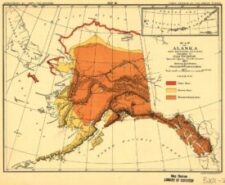 When 2024 began, Alaska may have been the only state in the U.S. where newspapers lacked any semblance of an organized effort to protect their interests. That ended early last year when a group of newspaper supporters established the Alaska News Coalition (ANC) under the auspices of the Juneau Community Foundation.
When 2024 began, Alaska may have been the only state in the U.S. where newspapers lacked any semblance of an organized effort to protect their interests. That ended early last year when a group of newspaper supporters established the Alaska News Coalition (ANC) under the auspices of the Juneau Community Foundation.
One year later the group has made tremendous progress, establishing a governing body and attracting the initial funding that will allow it to begin representing newspapers in the state in earnest. The protection of public notice is at the top of its to-do list.
According to Wrangell Sentinel publisher and ANC co-founder Larry Persily, the group got a big boost in October when it received a $100,000 Press Forward grant, helping it prepare for Alaska’s 2025 legislative session. Another significant milestone transpired this summer, when the IRS approved ANC’s application for status as a 501(c)(3) charitable organization. Persily was elected president of the organization.
Persily tells PNRC that ANC’s initial priorities are:
– Maintaining newspaper notice and increasing public access to them
– Developing a content-sharing program among Alaska newspapers, and
– Helping smaller newspapers in the state increase their digital presence
Persily and his ANC partners understand the importance that expanding into digital notice will play in helping them convince the state and local governments that newspapers and their websites remain the best vehicle to provide citizens with official notice. To that end, the group is planning to create and maintain a statewide public notice website where all notices published by newspapers in the state can also be posted. The ANC Board of Directors will be asked to approve a vendor for the project at its next board meeting, which was scheduled this week.
“It will be better for the public that newspapers establish and maintain a centralized, easily accessible website of public notices statewide than the option of multiple websites in multiple formats among state and municipal offices,” Persily says.
Public notice law in Alaska is unusual: There isn’t a general state statute that defines when notices must be published or the kinds of publications that qualify to publish them. Those standards are set in various provisions in state law designed for different programs and at the municipal level by boroughs and cities, which means the responsibility for fighting to maintain most local notice is not always a collective one, as it is in most states.
Generally, state government notice requirements are established by the state legislature on a statute-by-statute basis. Newspapers dodged a bullet last year when the House failed to advance a bill approved unanimously in the Senate that would have moved some Department of Natural Resources (DNR) water notices from newspapers to the DNR website. With the ANC in place to help oppose them, such efforts by state agencies promise to become even more challenging in the future.
